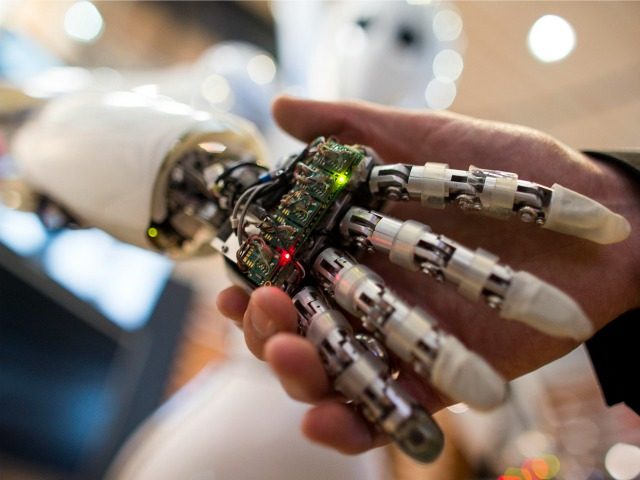The US military has revealed a $65 million project that aims to develop a digital brain interface, linking soldiers’ brains to computers.
The Daily Mail reports that the US military has been funding a $65 million project to develop a “brain chip” that would allow the human brain to be plugged directly into a computer. The system could give soldiers heightened senses and awareness of their surroundings but also has medical applications, possibly being used to treat those suffering from blindness, paralysis and speech disorders.
DARPA officials stated that the goal of the project is, “developing an implantable system able to provide precision communication between the brain and the digital world.” The group has selected five grant recipients to take part in the Neural Engineering System Design (NESD) program and will begin the program at the end of the year. The recipients of the multi-million dollar grants are Brown University, Columbia University, The Seeing and Hearing Foundation, the John B. Pierce Laboratory, Paradromics Inc and the University of California, Berkeley.
A DARPA official commented on the program saying,”‘These organizations have formed teams to develop the fundamental research and component technologies required to pursue the NESD vision of a high-resolution neural interface and integrate them to create and demonstrate working systems able to support potential future therapies for sensory restoration.”
Phillip Alvelda, the founding NESD program manager, stated “The NESD program looks ahead to a future in which advanced neural devices offer improved fidelity, resolution, and precision sensory interface for therapeutic applications,” he continued, “by increasing the capacity of advanced neural interfaces to engage more than one million neurons in parallel, NESD aims to enable rich two-way communication with the brain at a scale that will help deepen our understanding of that organ’s underlying biology, complexity, and function.”
The program’s first phase of development will focus on the advancement of hardware, software, and neuroscience relating to the NESD program and will be tested on animals and cultured cells. The second phase will be comprised of long, ongoing studies as well as developments in miniaturization and integration. At this stage, the program will consider seeking approval for possible human testing of the new technology.
“Today’s best brain-computer interface systems are like two supercomputers trying to talk to each other using an old 300-baud modem,” said Phillip Alvelda, the NESD program manager. “Imagine what will become possible when we upgrade our tools to really open the channel between the human brain and modern electronics.”
Lucas Nolan is a reporter for Breitbart News covering issues of free speech and online censorship. Follow him on Twitter @LucasNolan_ or email him at lnolan@breitbart.com

COMMENTS
Please let us know if you're having issues with commenting.